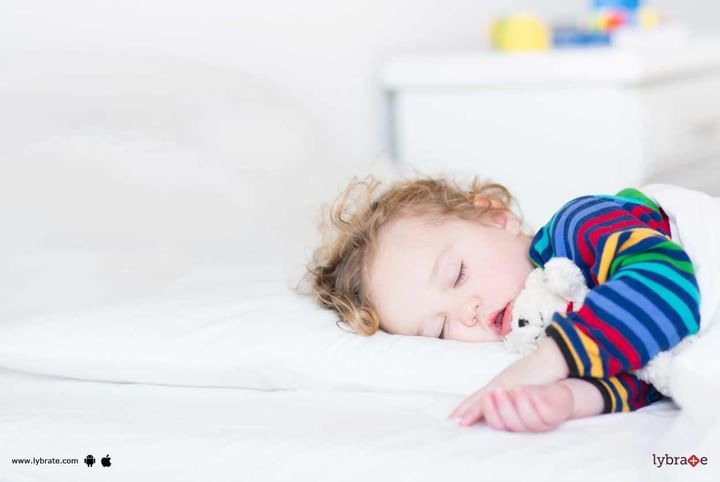Sleep Disorders In Children - 6 Most Common Types Of Them!
Sleep is the most important aspect for a healthy beign, but for kids it is of utmost priority. Lack of sleep can often have a negative impact on the brain funtioning of kids along with accidents. Listed below are the major sleep disorders in children along with their causative factors:
1. Sleepwalking: It is not uncommon for children under the age of 10 to sleep walk. Despite being harmless on its own, the effects of sleep walking can be dangerous such as stepping outdoors or hurting themselves during sleep. If the child runs into objects while sleep walking, they might wake up and hence further worsen the situation.
2. Nightmares: They might be general or result from Post-Traumatic Stress Disorder. Nightmares, if frequent, can make falling asleep a tedious task. Nightmares in children are common and they usually begin to reduce in frequency by 9 years of age.
3. Obstructive sleep apnea: Snoring might be the result of improper respiration while sleeping and while it isn’t a cause of worry, regular snoring might lead to insufficient oxygen during sleep, thus making shut eye a challenge. It might be hereditary or the result of a deviated nasal septum or blocked nose. The snoring might hamper the quality of sleep.
4. Bedwetting: This is something most children experience, but usually grow out of by the time they turn six. It doesn’t need to be a cause of concern unless the frequency doesn’t reduce over time and more than two instances of bedwetting take place in a week.
5. Insomnia in children: It can be due to a host of factors and coping with changes to their normal lifestyle is one of the biggest triggers. Mental disorders such as anxiety and stress due to a variety of reasons (like the death of a loved one) may also be the cause of distress and lead to troubled or incomplete sleep.
6. Excessive daytime sleepiness: Excess naps throughout the day, always feeling lethargic or experiencing trouble waking up in the morning may be symptomatic of EDS. It isn’t uncommon in adults either wherein despite apparent proper sleep; energy levels seem to be low throughout the day.



+1.svg)
